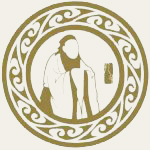In the long history of the Chinese civilization, Confucius and Lao Zi (老子, a philosopher in the Spring and Autumn Period and founder of Taoism) are undoubtedly two outstanding thinkers. They are the founders of Confucianism and Taoism, respectively, which profoundly influenced Chinese culture.
According to historical records, these two sages had three meetings.
After the first meeting, Confucius gained a deeper understanding of Li (礼); after the second meeting, Confucius thought more deeply about Ren (仁) and Yi (义); and after the third meeting, Confucius obtained more profound insights into the highest state of Tao (道, the Way of the Universe).
This article will focus on Confucius’s first encounter with Lao Zi in Luoyang (洛阳), which set Confucius on a more mature path.
The First Meeting between Confucius and Lao Tzu
Historically, when Confucius first met Lao Zi, Lao Zi was still working as a historiographer in the library of the Zhou Dynasty. Through this meeting, Confucius learned a lot about the Li system.
In 518 BC, at age 34, Confucius heard of a great sage in Luoyang named Lao Dan (老聃), also known as Laozi.
He greatly admired Laozi and said, “I have heard that Lao Tzu knows the past and present, understands the origin of rites and music, and understands the attribution of morality. Therefore, he is my teacher, and now I will meet him.”
Therefore, Confucius went to Luoyang with his disciple, Nangong Jingshu (南宫敬叔).
The two met and had a long talk.
Subsequently, Lao Zi took Confucius to visit Chang Hong (苌弘). Chang Hong was good at music. He taught Confucius the laws and principles of music and took him to watch the sacrificial ceremony for the gods, which inspired Confucius greatly.
A few days later, Confucius was ready to say goodbye to Laozi.
Lao Tzu stated that “clever individuals with profound insights often face repeated trials and tribulations because they tend to discuss the rights and wrongs of others. Similarly, those who are good at arguing and open-minded often invite trouble by proclaiming the ugliness and evils of others. Therefore, as a man, do not assume that you are wiser than others, and as a subject of a king, do not assume that you are nobler than others. Please keep my words in mind.”
Upon hearing this, Confucius bowed and said, “I will certainly remember this!”
When Confucius left, the two came to the Yellow River. Confucius inquired about the virtues of water.
Lao Tzu said, “The best of men is like water. Water benefits all things and does not compete with them. It dwells in (the lowly) places that all disdain, which is the epitome of modesty. Rivers and seas can be the origins of all streams because they excel at taking a lower position. Nothing in the world is softer than water, yet it can penetrate even the hardest things. Nothing surpasses it; that is the virtue of softness. Therefore, weakness can overcome strength, and softness can overcome hardness. Water can fit into any space precisely because it has no fixed form. Therefore, the teaching of not speaking and the benefits of Wu Wei (无为).”
Upon hearing this, Confucius regained his composure and replied, “Your words have enlightened me.”
They then engaged in another lively discussion.
Finally, at the reminder of Nangong Jingshu, Confucius hastily said goodbye to Laozi. He got into the carriage and reluctantly left Luoyang.
Addendum and summary
Before Confucius met Laozi, he had been a highly respected teacher. Nevertheless, he decided to trek across the mountains to meet Laozi, showing his endless quest for knowledge.
After meeting Lao Zi, Confucius began to consciously reduce some of his overly subjective practices and became more dispassionate in his analysis of problems.
At the same time, his constant diligence and enthusiasm have not diminished, earning numerous people’s respect. Hence, his number of students continued to grow, and he had more admirers from far and wide.
In short, this meeting offered Confucius deeper insights into Li and laid the foundation for his later system of thought.
He also learned more about morality from Laozi and began thinking about changing society through morality. This experience was an important milestone in Confucius’s intellectual development.

Leave a Reply Cancel reply